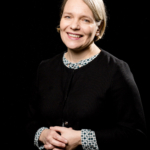So far, the Impact Accelerator has provided more than a dozen companies and organisations from different parts of Finland with tools for demonstrating the benefits of their activities to society. The third accelerator, with ten new participants, has started this autumn.
Companies use impact as a competitive advantage, because customers, investors and other funders are all interested in the impact that a company can produce. By impact we mean the longer term results provided by a certain service or product. For example, providing a home for a young person in danger of exclusion not only opens the door to his/her own home but also a metaphorical door to employment, study, society and well-being.
“We must be able to clarify the added value of impacts and make it concrete. The well-educated customer and investor of today wants facts,” says Heidi Humala, a coordinating advisor for Sitra’s Impact Accelerator activities.
Sitra’s education and mentoring programme is meant for companies and organisations whose services support well-being in Finland. From among about 50 applicants for the third accelerator, eight companies and two organisations were selected. These work to promote the well-being of children, families with children and young people, the independence of elderly people and well-being at work or in general life. The participants are Global Learning Innovations Oy, Health Revolution Oy, Intelles Informatica Oy, Lifted Oy, Nicehearts ry, Lauste Family Rehabilitation Center, Sininauha Oy, SOS Children’s Villages, Vibemetrics Oy and Helsinki Deaconess Institute’s VAMOS services.
The selection panel included experts from Sitra, Fiban, Vertical, xEtu and Arvo-liitto Association, and the following criteria were applied to the applications: demonstrating that an impact chain exists, potential for scaling, team expertise, preparedness and the need to invest.
“The selection from among many good applicants was not easy. In addition to the selection criteria, we tried to evaluate how the needs of the applicants and the contribution of the Impact Accelerator programme would meet. Another aim was to ensure that we could assemble a team that was compatible and provided possibilities for peer learning and cooperation”, Humala explains.
New investment targets for the impact investing markets
Impact investing helps to promote the common good in terms of targets and productivity. Most often, the investments target a company whose activities enable the desired change, be it prevention of exclusion of young people, the education of immigrants or the promotion of well-being at work.
“Impact investing is not charity nor maximisation of profit: it is situated between these two extremes. It seems this form of investment is striking a chord with more and more investors. Striving for economic profitability and societal impacts in many ways produces positive results for building the future,” according to Mika Pyykkö, the head of Sitra’s impact investing team.
The concept covers many kinds of instruments, from loans to equity instruments and to results-based financing agreements known as SIB (social impact bond) agreements. For companies, identification of impacts thus opens doors to new forms of financing and new sources.
Impact investing is still a novel subject both in Finland and around the world. For markets to really take off, good investment targets are needed, that is, companies whose impact has been verified and who can communicate this to investors. One of the aims of the Impact Accelerator is to improve the preparedness of the participants for investment and financing.
“This is the golden thread in all of our undertakings,” says Heidi Humala. “The training reaches its climax in an event where the participants pitch their companies to potential investors.” The implementation of the training days is the responsibility of Impactor Consulting, Vaikuttava yritys, Suomen Säätiötilipalvelu and Etula Group together with Sitra’s experts.
Municipalities and the state are also paying more heed to what they want to accomplish with the 35 million euros that are channelled every year to public procurements in Finland. Procurements based on results are of interest, because the improved well-being achieved through them can be verified. This then will enable efficient targeting and use of tax revenues, among other things.
Mika Pyykkö emphasises that “a company which can show by calculations that its services function well and that it can reduce the need for social services has an advantage over a company whose major selling points are based on assumptions and arguments.”
The third accelerator will continue until December 2016 and will be the last for the time being, because Sitra’s impact investing project will end next summer.
“Next we are planning an accelerator of accelerators to ensure that the impact aspect will tie in as a natural part of the expertise and contents of other Finnish accelerators. It has also been wonderful to see how interested other accelerators have been in this subject,” says Humala.

